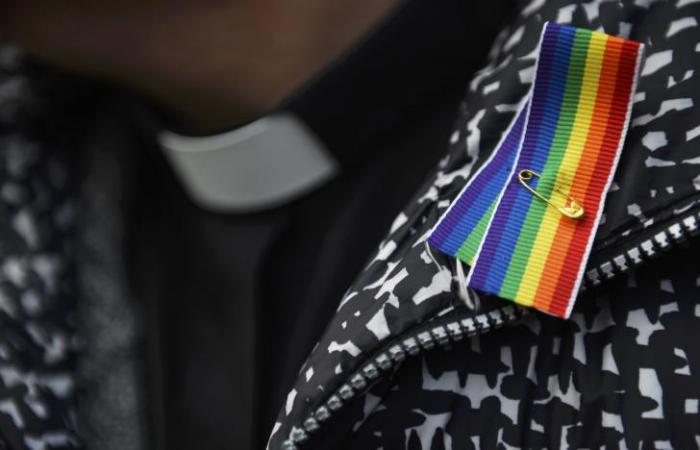Church in Wales to allow pastors to bless same-sex marriages, won’t conduct gay weddings

The Church in Wales, composed of six Anglican dioceses in the United Kingdom, will allow clergy to hold services designed to bless same-sex civil partnerships or marriages. However, the church will not allow clergy to conduct legally binding same-sex marriage ceremonies.
On Monday, the governing body of the Church in Wales passed a bill by more than the necessary two-thirds majority, following a debate at a three-day conference at the International Convention Centre Wales in Newport.
The bishops approved the bill by a unanimous vote, while the clergy voted 28 to 12 in favor with two abstentions. The laity voted 49 to 10 with one abstention.
The bill's passage will remain in effect for five years for a trial period. However, if any church staff prefer not to participate in the blessing ceremonies for same-sex unions, they can choose not to participate.
Church in Wales Senior Bishop Andy John said he knows the decision to honor and bless LGBT couples in blessing ceremonies would receive backlash from those who disagree. However, he finds the passage of the policy to be a “development” of the Church.
“But every development is to some degree a departure; something changes wherever there is a new expression of practice,” he said to the crowd at the meeting. “And even when such a change appears consonant with a stated position, it is nevertheless a change.”
Bishop Gregory Cameron of St Asaph, who introduced the bill, said, “the church has spoken decisively today in favour of blessings.”
“I come out of this debate with no sense of triumph,” he said in a statement, “but believing that the Church in Wales has done the right thing under God for the LGBTQIA+ community.”
Multiple bishops who introduced the bill stated in an explanatory memorandum in August that they believe the legislation will reveal that loving and faithful commitment is “worthy of acceptance by the Church by asking God’s blessing upon their commitment.”
The memorandum also acknowledges that the decision would be controversial, but also “a step on the way towards repentance of a history in the Church which has demonised and persecuted gay and lesbian people, forcing them into fear, dishonesty and sometimes even hypocrisy, preventing them from publicly living lives of committed partnership.”
The Evangelical Fellowship in the Church of Wales expressed disappointment in the passing of the bill.
“For many in EFCW, this decision will come with a sense of sadness that the Church in Wales has decided to depart from a traditional understanding of marriage, and with great uncertainty about how to move forward in good conscience,” a statement on the EFCW Facebook page reads.
“The EFCW executive welcomes any comments that the membership would like to be considered at [a Sept. 20] meeting. It will enable us to ensure that we are properly taking into account the breadth of concerns of the membership.”
Before the vote, Bishop John reportedly made an announcement in which he compared the passing of the legislation to other changes in the Church’s history.
“When the Church changed its position on forbidding meat with blood in it, or saw that slavery in all and any form was wicked, there was change,” he said during the Monday meeting. “Mission always lies at the heart of faith. … And being alive to God, to what might happen next, is part of remaining curious and open to new opportunity.”
A priest in training for the Church in Wales, Ruth Eleri James, is in a same-sex relationship with her partner, Hannah, a lay member of the governing body.
She told BBC news the final vote is important to her and prays for the day when they can have “the sacrament of marriage in a church.”
"It will reflect the real love and welcome that we have personally experienced in our local churches, who we know long to be able to offer something to couples who are in same-sex relationships,” she was quoted as saying. “But it's also important because this is a message to LGBTQ folk in society at large to say their relationships are loved and blessed by God, and that's a message that hasn't been given, certainly in my lifetime, and I long to be able to share that with people.”





























